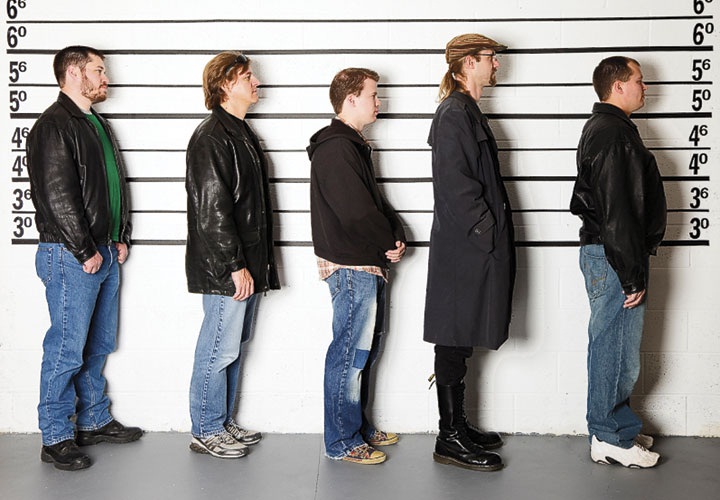




Colorado Criminal Law Guide – Alternate Suspect Defense – When Someone Else Committed The Crime
By H. Michael Steinberg Colorado Criminal Defense Lawyer
Colorado Criminal Law Guide – Alternate Suspect Defense – When Someone Else Committed The Crime – When you are charged in a Colorado criminal court and you are not guilty you might be able to set up an alibi defense. However, alibi evidence is difficult to assert as opposed to setting up the alternate suspect defense.
Sometimes known – as the SODDI (Some Other Dude Did It) Defense, it is known in the Colorado criminal justice system as the “alternate suspect” defense.
A recent (2015 case) handed down by the Colorado Supreme Court added a framework for the assertion of this defense in trial. Essentially, the Court held that the admissibility of alternate suspect evidence should be evaluated by the Trial Judge on case-by-case basis
I have written on this defense before. This new case aids in the analysis of alternate suspect cases and helps to clarify the Colorado approach to the admission of alternate suspect evidence.
The Framework For Analyzing Whether A Trial Judge Will Allow The Alternate Suspect Defense
In a nutshell the admissibility of alternate suspect evidence will depend on “the strength of the connection between the alternate suspect and the charged crime.” If there is a non-speculative connection or nexus between the alternate suspect and the crime charged,” the evidence will be admissible.”
What exactly does that mean?
Simply put:
If the defense introduces “alternate suspect” evidence – the Trial Judge will:
…look to whether all the similar acts and circumstances, taken together, support a finding that the same person was probably involved in both the other act and the charged crime.
Some Basic Foundations Underlying Colorado Alternate Suspect Evidence
The Defendant’s basis for seeking to introduce alternate suspect evidence is founded on a Defendant’s due process rights under the Fourteenth Amendment and article II, section 25 of the Colorado Constitution.
“Whether rooted directly in the Due Process Clause of the Fourteenth Amendment or in the Compulsory Process or Confrontation Clauses of the Sixth Amendment, the Constitution guarantees criminal defendants a meaningful opportunity to present a complete defense.”
Therefore a Colorado criminal defendant is entitled to all reasonable opportunities to present evidence that might tend to create doubt as to the defendant’s guilt.
Why Does This Defense Often Fail At Trial?
A Trial Judge will not permit the alternate suspect defense if:
- The evidence is so remote and lacks such connection with the crime that it must be excluded.
- The evidence does not sufficiently connect the other person to the crime, such as the evidence is speculative or remote.
- The admission of the evidence will only lead to speculative blaming that “heightens the risk of jury confusion and invites the jury to render its findings based on emotion or prejudice”.
This analysis of an offer by the Defendant to seek this defense is done on a “case-by-case” basis taking into account all of the evidence that is “proffered” (offered by the defendant in open court) to show that the alternate suspect committed the charged crime.
There Are Limitations On Whether A Defendant Can Present ANY Evidence Of An Alternate Suspect Who Committed The Crime
First – Should You Seek To Introduce Alternate Suspect Evidence?
We know that the admissibility of alternate suspect evidence depends on the “strength of the connection between the alternate suspect and the charged crime.”
Therefore the following guidelines may help an accused decide to seek to admit alternate suspect evidence.
- A Defendant might seek to show that someone else committed a criminal when:
- The alternate suspect had a motive to commit the crime; (however motive alone will never suffice)
- The alternate suspect had an opportunity to commit the crime;
- The alternate suspect confessed to the crime or otherwise engaged in behavior indicating his involvement;
- The alternate suspect is linked to physical evidence of the crime;
- The alternate suspect committed similar acts or crimes.
We described the applicable rule of law to be that evidence of another person’s motive or opportunity “is not admissible without proof that [the alternate suspect] committed some act directly connecting him with the crime.”
The Prosecution -The State Must Prove Identity In Every Colorado Criminal Case
Why Is Alternate Suspect Evidence Relevant To DISPROVE The Identification Requirement That The State of Colorado Must Establish Beyond A Reasonable Doubt?
In every criminal prosecution, identity is an essential material element of EVERY charged crime. The State of Colorado must prove, beyond a reasonable doubt, that the Defendant committed the charged crime.
An accused will seek to admit alternate suspect evidence because it will cast reasonable doubt on the State’s ability to prove the material element of identity. If the Defendant alleges and proves someone else may have committed the crime, there must be at least a reasonable doubt that the Defendant committed the crime or crimes charged.
We next turn to Those Colorado Rules Of Evidence (CRE) which govern the rules of admissibility of the evidence.
First – The Evidence Must Be Relevant Under CRE 401
Alternate suspect evidence must be relevant…. Usually it is. Relevance in this context is whether (as noted above) the alternate suspect evidence establishes a non-speculative connection or nexus between the alternate suspect and the crime charged. This is the easiest rule to overcome:
Relevant evidence is evidence “having any tendency to make the existence of any fact that is of consequence to the determination of the action more probable or less probable than it would be without the evidence.” CRE 401.
Second – The Evidence Must Meet The Requirements Of CRE 403
If relevant, the probative value of the evidence must not be sufficiently outweighed by the danger of confusion of the issues or misleading the jury, or by considerations of undue delay.
“Because the balance required by CRE 403 favors admission, a reviewing court must afford the evidence the maximum probative value attributable by a reasonable fact finder and the minimum unfair prejudice to be reasonably expected.”
Again .. relevant evidence may be excluded “if its probative value is substantially outweighed by the danger of unfair prejudice, confusion of the issues, or misleading the jury, or by considerations of undue delay, waste of time, or needless presentation of cumulative evidence.” CRE 403.
Third – If The Defense Seeks To Admit “Bad Acts” Of The Alternate Suspect – CRE 404(b) Applies
“If the evidence consists of “bad acts” by the alternate suspect, the Trial Court must determine whether the acts and circumstances, taken together, support a finding that the same person probably was involved in both the other act and the charged crime.”
Under CRE 404(b), “[e]vidence of other crimes, wrongs, or acts is not admissible to prove the character of a person in order to show that he acted in conformity therewith.” This evidence may be admissible, however, for other purposes, such as proof of motive, opportunity, intent, preparation, plan, knowledge, identity, or absence of mistake or accident.
“A trial court must decide the admissibility of similar acts evidence offered by a defendant on a case-by-case basis, looking to whether all the similar acts and circumstances, taken together, support a finding that the same person probably was involved in both the other act and the charged crime. “
Finally – If The Statements Are Hearsay – They Must Meet The Evidenciary Foundations of The CRE Hearsay Rules (Such as Rule 804)
If the evidence concerns statements by the alternate suspect, the Trial Court must determine whether the alternate suspect’s statements meet the requirements of Colorado’s Hearsay Rules.
The Trial Judge Has Near Absolute Authority To Make The Decision To Admit Alternate Suspect Evidence
Before a Trial Judge’s decision to admit or exclude alternate suspect evidence – the Colorado Court of Appleas must show “an abuse of discretion” which is a very high standard to establish, specifically the a Defendant – on appeal – “must establish that, under the circumstances, the trial court’s decision was ‘manifestly arbitrary, unreasonable, or unfair.’”
This is because the Trial Judge is “in the best position to evaluate alternate suspect evidence at trial.
Colorado Criminal Law Guide – Alternate Suspect Defense – When Someone Else Committed The Crime
If you found any information I have provided on this web page article helpful please click my Plus+1 or the Share button below so that others may also find it.
Never stop fighting – never stop believing in yourself and your right to due process of law.
ABOUT THE AUTHOR: H. Michael Steinberg – Email The Author at [email protected] – A Denver Colorado Criminal Defense Lawyer – or call his office at 303-627-7777 during business hours – or call his cell if you cannot wait and need his immediate assistance – 720-220-2277. Attorney H. Michael Steinberg is passionate about criminal defense. His extensive knowledge and experience of Colorado Criminal Law gives him the edge you need to properly handle your case.
 You must make a responsible choice for a Colorado Criminal Defense Lawyer – we encourage you to look at our firm. Over the last 40 plus years – H. Michael has mastered nearly every area of criminal law, procedure and trial and courtroom practice and he is passionate about getting you the best result in your case. He has written and continues to write extensively on Colorado criminal law and he hopes this article – – helps you in some small way. H. Michael hopes you found this page helpful – Colorado Criminal Law Guide – Alternate Suspect Defense – When Someone Else Committed The Crime.
You must make a responsible choice for a Colorado Criminal Defense Lawyer – we encourage you to look at our firm. Over the last 40 plus years – H. Michael has mastered nearly every area of criminal law, procedure and trial and courtroom practice and he is passionate about getting you the best result in your case. He has written and continues to write extensively on Colorado criminal law and he hopes this article – – helps you in some small way. H. Michael hopes you found this page helpful – Colorado Criminal Law Guide – Alternate Suspect Defense – When Someone Else Committed The Crime.

Other Articles of Interest:
- Colorado Criminal Defenses – The Alternate Suspect – Misidentification As A Defense
- Your Miranda Rights I
- Your Miranda Rights
- Colorado Criminal Law Guide – Your Lawyer’s Duty To You – The Client
- Polygraphs I













